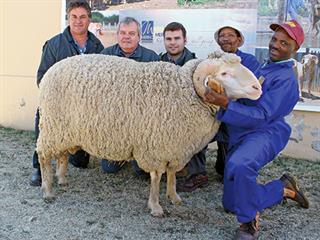Local Fruit, nut and meat exportersto the US should be aware of that country’s plans to launch the Country of Origin Labeling (Cool) rules which, combined with its “Buy American”’ campaign, could have a negative impact on exports.
Cool, a mandatory retail labelling law, was scheduled to have come into effect on 16 March 2009, but was put on hold by the new administration.
It would require retailers to inform consumers about the country of origin for certain products like meat, fish and shellfish, peanuts, perishable agricultural products, pecans, ginseng and macadamia nuts.
The National Agricultural Marketing Council (NAMC) compiled a report on the potential impact this new legislation would have on South African exporters when eventually enacted.
In 2008, South African fruit exports to the US were valued at R400 million, constituting 26,3% of total agricultural exports (R1 516,2 million).
According to the NAMC report,consumers could react negatively towards products originating from foreign markets and those perceived to be inferior. Although this wasn’t a rule of thumb, with the enforcement of the Cool rule, it was likely to happen.
The “Buy American” programme was also likely to strengthen patriotism towards “home-grown” products.
But Agricultural Business Chamber head Dr John Purchase said South African farmers have the capacity to deal with such challenges. “We know that country of origin rules are going to become part of the export business no matter where we export, be it the US, Europe or the Far East. We’ll have to be ready for it,” he said.
Dr Purchase said that while the rules would have a cost implication and consequently shift the barriers of entry into the export market, they could benefit farmers as South African produce is highly regard on overseas markets.
“It’s the added cost factor that concerns us most,” he said, explaining that although local farmers are some of the least subsidised farmers in the world, they have to remain competitive in the face of the new cost challenges imposed on them by both overseas markets, government and parastatals like Eskom. – Jasper Raats
Are South African fruit and nuts ‘cool’ enough for the US?
Local Fruit, nut and meat exportersto the US should be aware of that country’s plans to launch the Country of Origin Labeling (Cool) rules which, combined with its “Buy American”‘ campaign, could have a negative impact on exports.
| Read more |
|









